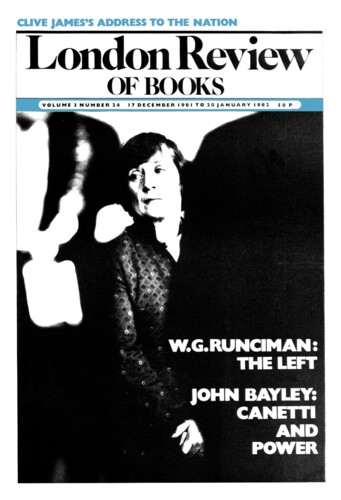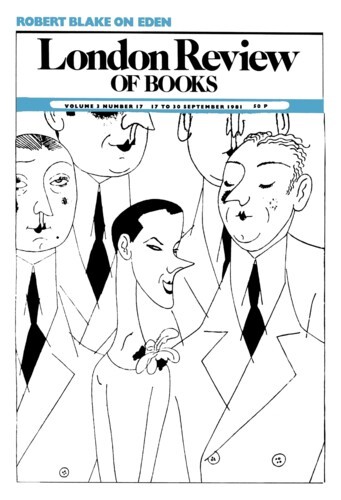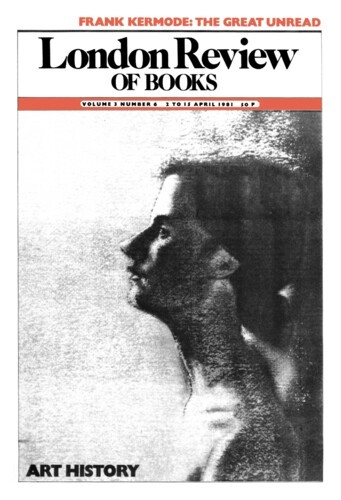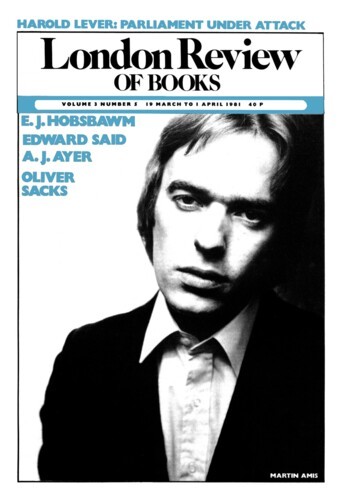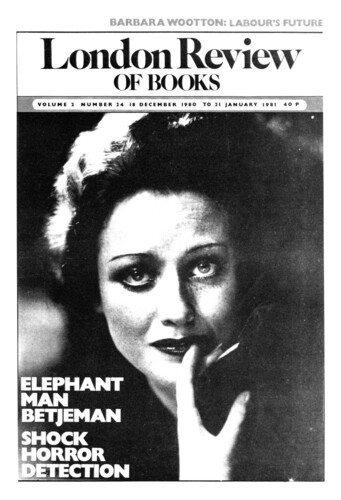Charles and Alfred
J.I.M. Stewart, 17 December 1981
The title page of this book tells us that it is ‘published to commemorate the centenary of Sir Charles Tennyson, the poet’s grandson and biographer, born 8 November 1879, died 22 June 1977’. Charles Tennyson was very far from being the most eccentric of all the Tennysons, but he is the most astonishing of them at least in one regard: that of enhanced, rather than merely sustained, activity in extreme old age. Through Summerfields, Eton and King’s, the Bar, the Office of Works, the Colonial Office, he made his way as a rather diffident if clearly able person. He became secretary to the Dunlop Rubber Company and Chairman of the Board of Trade Utility Furniture Committee; admiring Henry Moore, he was immensely proud ‘of having once helped him through the CIAD’ (Central Institute of Art and Design). He was also something of a literary man, who by the age of 51 had published 140 reviews and miscellaneous pieces; of these just four are in any way connected with his grandfather the Laureate.
